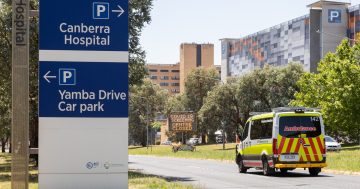[First filed: July 26, 2008 @ 09:08]
Now here’s a story that somehow was inevitable would have Katy Gallagher’s name on it.
The Canberra Times reports that graduates from the new Canberra medical school are being sent inter-state contrary to their wishes.
The problem, it seems, is that because we don’t have enough (yes that’s right) medical graduates we have to use a NSW allocation system which then sends even more of our graduates away.
One would think it is not too late to negotiate a solution to this impasse.
Remember Katy, it’s election year.
UPDATED: Katy has indeed been paying attention. She’s announced that a solution has been found:
- Following ongoing discussions and negotiation with the NSW Institute of Medical Education and Training (IMET) ACT Minister for Health, Katy Gallagher MLA, has informed local students that recruitment action will be undertaken to enable ANU Medical School graduates to apply directly for internships with ACT Health for 2009.
Well done.
















